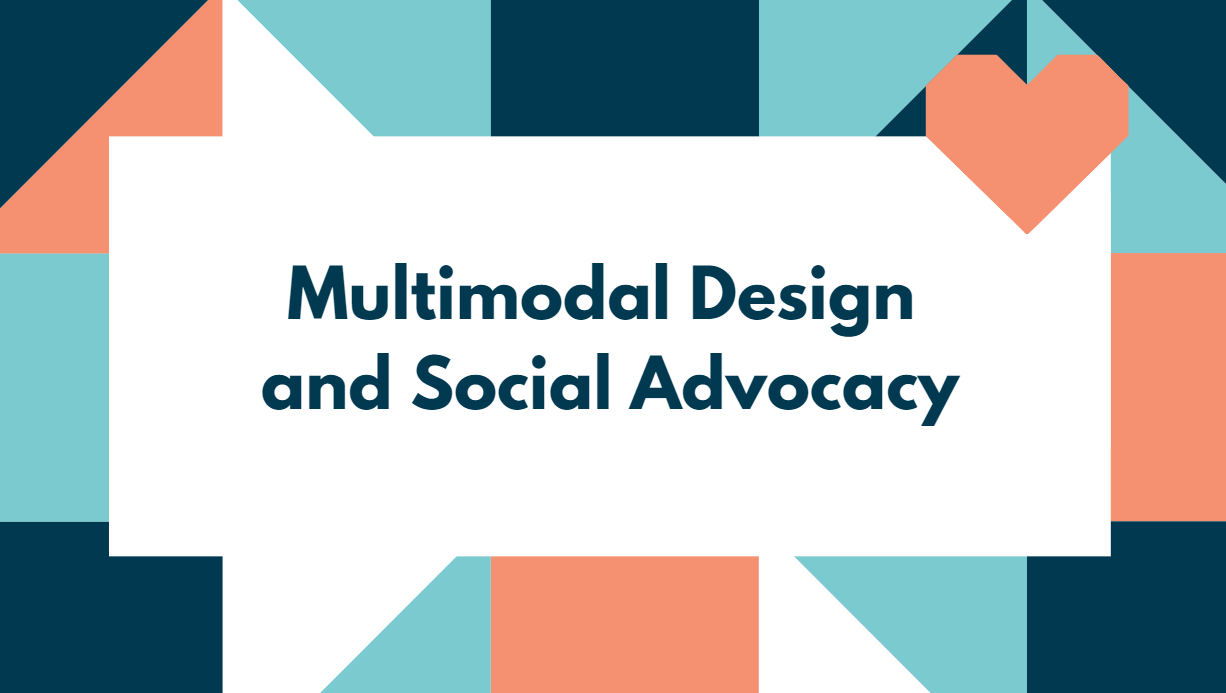Acknowledgement
We thank all contributors of the 15th Blog Carnival for their perspectives, engaging discussion, and exemplications of multimodal design and social advocacy. Our initial intention for this blog carnival is to “to spark an interdisciplinary conversation surrounding the key role of multimodal design in fostering social advocacy within and across the fields of digital rhetoric, multimodal composition, and technical communication.” We are grateful for the examples provided by the contributors across these fields.
The three main domains that have emerged from the entries in this blog carnival are pedagogical models, theoretical and practical futures, and critical reviews of multimodal advocacy.
Pedagogical Models
Kristin Prins begins with the question—“How does the digital change what we know about and how we practice rhetoric and literacy?”—and offers some student projects to illustrate the affordances of digital tools in social advocacy. Dana Comi demonstrates how instructors can design technical communication assignments that promote linguistic diversity and community-centered design. Similarly, Erica Stone showcases her community-based curriculum, collaboration, and reciprocity in a technical communication course. Matthew Jacobson presents a digital rhetoric course that locates democracy within design. Rachael Sullivan looks at how socially-engaged posters can prompt students to invest in social advocacy. Through snippets of personal memoirs, Peiru Yu explains how digital interview projects answer the call of care ethics.
Theoretical and Practical futures
Expanding theoretical perspectives, Justin Cook and Cody Jackson complicate multimodal expressions through queer theory and mourning practices. Mary Le Rouge reveals what design advocates can learn from the ways memes stimulate environmental debates. Erin Kathleen Bahl asks: How do we create multimodal documents that actively do good in the world, especially in ways that benefit marginalized voices and perspectives? Mapping practical futures, Megan J. Busch explores alternatives to professional design programs that are cost-prohibitive for students and argues for more accessible tools to support advocacy pedagogy.
Critical Reviews
Turning to critical theories, Megan Von Bergen examines the manifestations of digital ethos in Katharine Hayhoe’s climate advocacy work. Jason Markins embraces Garnnett Hertz’s Disobedient Electrics to disrupt oppressive discourses and rhetorical practices. Finally, Emma Rose details how her technical communication class invites students to critically examine social biases in technology and to address such biases through multimodal design.
Conclusion
What we have learned from these entries in the blog carnival is that multimodal designs and technologies, rather than being neutral platforms of information, complicate our understanding of social issues related to race, gender, disability, accessibility, and diversity. These blog entries bring together the interdisciplinary perspectives of researchers, teachers, and designers, who collectively reimagine the possibility of approaching design as a critical space of social action both inside and outside of the classroom. To continue the conversation about design advocacy, we invite readers to share reactions on our Facebook page and in each blog post. We would love to hear what you think. Happy reading!

